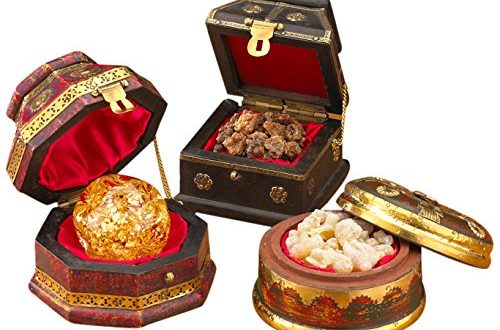Good News – Jonah 4
Historical Setting of Jonah
It was interesting to me that both Jonah and Nahum were prophets to Nineveh. Nineveh was the capitol of Assyria until it was destroyed in 612 BC. Nahum specifically prophesied the destruction of Nineveh. Jonah is mentioned in 2 Ki 14:25 as living during the reign of Jeroboam II. The events recorded in the book of Jonah likely took place during this period (ca. 793-753 BC) which was at least 3 decades before Assyria conquered the Northern Kingdom.
Historical Setting of Jonah
It was interesting to me that both Jonah and Nahum were prophets to Nineveh. Nineveh was the capitol of Assyria until it was destroyed in 612 BC. Nahum specifically prophesied the destruction of Nineveh. Jonah is mentioned in 2 Ki 14:25 as living during the reign of Jeroboam II. The events recorded in the book of Jonah likely took place during this period (ca. 793-753 BC) which was at least 3 decades before Assyria conquered the Northern Kingdom.
About Jonah
Jonah is sometimes dismissed as fiction because of the fish. Though difficult to comprehend, the other things Jonah experienced are certainly just as miraculous if not more so. First, God tells Jonah to go preach repentance in the city of Nineveh. This city was the capitol of a ruthless and oppressive regime poised to threaten Israel. In fact Assyria did attack and defeat Israel just a few decades later. Jonah did not want to go. Nineveh laid to the West, very close to modern Mosul Iraq. Jonah ran the opposite way. He caught the first ship heading East from the port city of Tarshish. When the storm came Jonah wound up getting tossed overboard as a result of a lottery to see who was at fault for the storm. While drowning he was swallowed. By the third day he was willing to submit to God and prayed earnestly. After the fish spit him out he went to Nineveh as God commanded. Once there he went into the city and spoke a single sentence: “Yet 40 days and Nineveh will be overthrown.” The people listened and repented. The king commanded everyone to turn from evil in hopes God would relent of the sentence. God did relent. This brings us neatly to Chapter 4 where Jonah argues with God about what happened.
Jonah’s Character
Throughout the book of Jonah we see a prophet who knows God’s word and even has God’s attention, but doesn’t understand God’s heart. God not only cares about the people of Nineveh, He cares about Jonah enough to explain it to him. Jonah doesn’t see it God’s way. He tries to run, but you can’t get away from God. He submits, but even then he is bitter with an assignment he hates. Jonah is shortsighted in many ways. He puts others at risk in his foolishness. He recognizes God’s love, power over death, and salvation. Even so he fails to see God has love for the whole world and all creation, not just those born into the Hebrew culture. Truly a reluctant prophet, in spite of his personal feelings the story of Jonah is a powerful testimony of a God who loves and cares, who listens to the cry of any repentant heart, and who deals with all of us where ever we are.
Belief Does Not Always Equal Understanding
Jonah 4:1-2 But it displeased Jonah exceedingly, and he was angry. And he prayed to the Lord and said, “O Lord, is not this what I said when I was yet in my country? That is why I made haste to flee to Tarshish, for I knew that you are a gracious God and merciful, slow to anger and abounding in steadfast love, and relenting from disaster. Clearly Jonah knew God’s character and believed. Jonah’s problem wasn’t lack of faith, it was lack of understanding. When people he hated were saved it displeased him exceedingly. Jonah is a model for me at least in that he had faith in spite of lacking understanding. God can deal with any problem a person has so long as that person will hear and heed Him.
Obedience Does Not Always Equal Happiness
Jonah 4:3-4 Therefore now, O Lord, please take my life from me for it is better for me to die than to live. And the Lord said, “Do you do well to be angry?” My NJPS translates God’s question as: “Are you that deeply grieved?” Without hearing the conversation first hand it is difficult to be sure exactly what tone God was taking with Jonah, but we can tell Jonah is very unhappy God would grant a reprieve to those horrible Assyrians he hates so badly. One might think Jonah was unstable since he was acting suicidal and so full of loathing. I think it might be more accurate to see Jonah as a very angry individual whose thinking was clouded by emotion. The fact God spoke to Jonah means God was listening. What happens next proves God will go to great lengths to reach each of us where we are whether we are as lost as the Assyrians or as faithful as a prophet like Jonah.
Object Lesson
Jonah 4:5-8 Jonah went out of the city and sat in the east of the city and made a booth for himself there. He sat under it in the shade, till he should see what would become of the city. Now the Lord God appointed a plant and made it come up over Jonah, that it might be a shade over his head, to save him from his discomfort. So Jonah was exceedingly glad because of the plant. But when dawn came up the next day God appointed a worm that attacked the plant, so that it withered. When the sun rose, God appointed a scorching east wind and the sun beat down on the head of Jonah so that he was faint. And he asked that he might die and said, “It is better for me to die than to live.” Jonah went out to see what would become of the city and sure enough God showed him. Of course Jonah, being a bit dense and cross, didn’t immediately realize he was a role player in God’s lesson.
Good News of Jonah 4
Jonah 4:11 “And should I not pity Nineveh, that great city, in which there are more than 120,000 persons who do not know their right hand from their left, and also much cattle? God’s plan for Nineveh was to reach as many lost individuals as possible. He knew what Assyria would do later, but even so God had mercy for all who would come to him, even from among those under the worst judgment. I believe God surely holds back his hand from destroying our fallen world today because He patiently seeks as many souls as will come to Him through Jesus Christ. Jonah’s message was a simple one, that judgment was coming. What are you doing about judgment? Are you repentant? Are you living in submission to the Lord? Are you living with grudges? Do you believe some need judgment more than others? Are you willing to listen to the Lord and let Him tell you how much love He has for you and for others? Jesus tells us God loved the world so much he sent His son to die for our redemption. Believe in him and by your faith you will be saved from sure destruction. Better still, the hope you have is not merely survival, but there is a promise of no sorrow or death eternally in the presence of the living love of our Lord.


